U.S. fast-food workers went on strike on Thursday, targeting fast-food restaurant operators such as McDonald’s, Wendy’s, KFC and Burger King. They are seeking wages of US$15 an hour and the right to unionize without retaliation. At present, some are earning US$8.60 an hour while others are getting US$10 an hour. On the other hand fast-food restaurants are making billions of dollars in profit.
The movement’s leaders hope to take their cause global. They claimed support protests will take place in 80 cities in more than 30 countries, from Dublin to Venice to Casablanca to Seoul to Panama City (not Malaysia though). Well, at least they’re trying to get protesters to do so in 30 cities in Japan, 20 in Britain, 5 in Brazil and 3 in India. FastFoodGlobal.org claimed 230 cities in 33 countries joined the strike.
However, in some countries where workers have strong unions, their wages are pretty good. For example in Denmark, McDonald’s workers earn US$21 (£12.50) an hour plus good benefits, more than US$15 demanded by their comrades in United States. So, while workers in Denmark make good money, workers in the States are struggling to bring food to the table for their family.
But there’re good reasons for fast-food workers in certain European countries earn higher pay than elsewhere. If Big Mac index is any indicator, Norway, Switzerland, Sweden, Finland, Belgium, Italy, Denmark, France are some countries where their big mac is much expensive than the United States, hence the ability to pay more to their workers, literally speaking.
The Big Mac index, popularly known as Burgernomics, was invented by The Economist in 1986 as a measurement to gauge the purchasing power parity (PPP) between two currencies. It’s a simple way to measure a country’s purchasing power. Understandable, Big Mac index is not a precise currency misalignment measurement for the simple reason that poor countries’ labour costs are much lower.
For example, a Big Mac in America in Jan 2014 was US$4.62; in Malaysia it was only $2.23 at market exchange rates. So the “raw” Big Mac index says that the “ringgit” was undervalued by 51.7% at that time. Similarly, Indian and Vietnam currencies are undervalued by 66.7% and 38.5% respectively. But obviously, if we re-adjust these currencies accordingly, it would create huge chaos.
Looking at how much a Big Mac cost in America from 2000 to the present 2014, the price has jumped from US$2.51 to a whopping US$4.62 a burger today. The only country that has a Big Mac index quite similarly to United States is Britain. The cheapest European countries to get your Big Mac are Ukraine, Poland, Lithuania, Czech Republic, Turkey, Hungary, Portugal, Greece.
However most of the countries which have undervalued Big Mac are located in Asia. India, being the most undervalued would be the best place to get your Big Mac at US$1.54 a burger (it’s made from chicken because Hindus don’t eat beef), follows by Malaysia, Indonesia, Sri Lanka, China, Vietnam, Thailand, Philippines and Pakistan. Interestingly, “developed” countries or cities such as Hong Kong, Taiwan, Japan, South Korea and Singapore have extreme undervalued Big Mac burgers.
Surprisingly, in the North and South America continents, Venezuela has the same overvalued Big Mac as Switzerland. South Africa, perhaps the only country in the Africa continent that sells Big Mac has the same undervalued burger as in Ukraine, Malaysia, Indonesia or Hong Kong. Having a Big Mac in South Africa is cheaper than Mexico, Argentina or Peru. Well, actually Argentina doesn’t sell Big Mac anymore.
Nevertheless, you should take Big Mac index with a pinch of salt. The reason is pretty simple. The cost of doing business, or in this case making a burger, is different. The costs of labour, raw material, rental, transportation, security cost, tax structure and whatnot are totally different from one country to another.
Still, if you believe that a dollar should buy the same amount of the same goods across all countries, then you should buy currencies of countries of which their Big Mac index are undervalued and sell currencies from countries where their Big Mac index is overvalued.
Other Articles That May Interest You …
- Rebuild Teeth With £10 Toothpaste, Here’s The Catch …
- 30 Investing Tips & Tricks You Won’t Learn At School
- Here’s How You Charge Your Devices In Half The Time
- How To Save Money This Year – 15 Exciting Tips
- 15 Fast Food Restaurants You Wish Would Come Here
- Your Next Holiday Tip: 2013 Top-20 Islands In The World
- Top 10 Most Profitable Movies Of The Year (mid-2013)
- Crazy Services For The Rich That You May Not Know

|
|
May 17th, 2014 by financetwitter
|


|

|

|

|

|

|






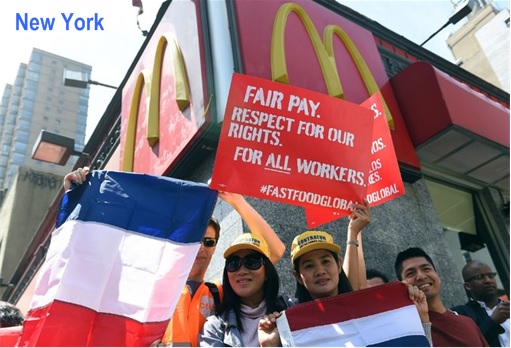


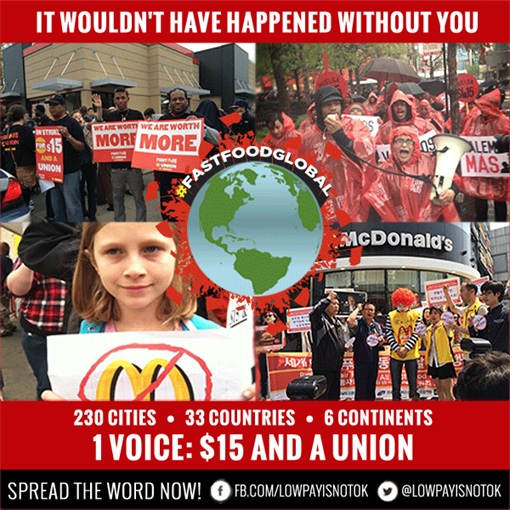
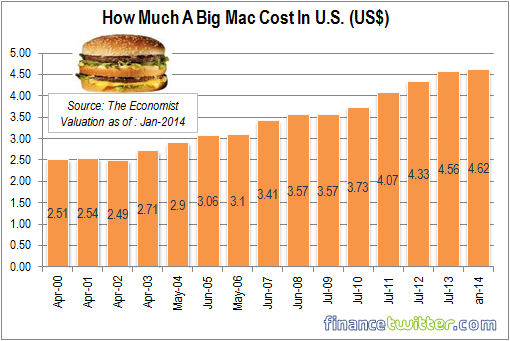
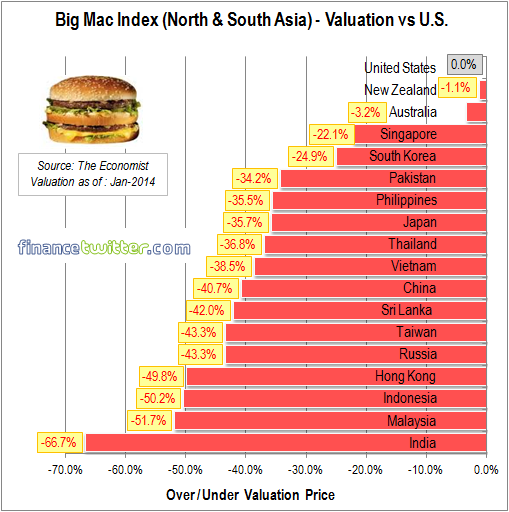
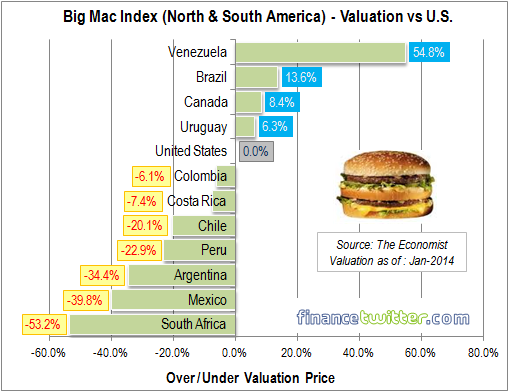
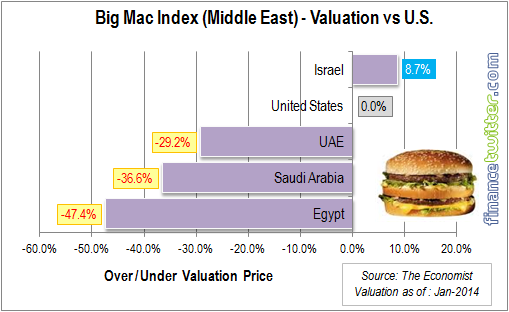
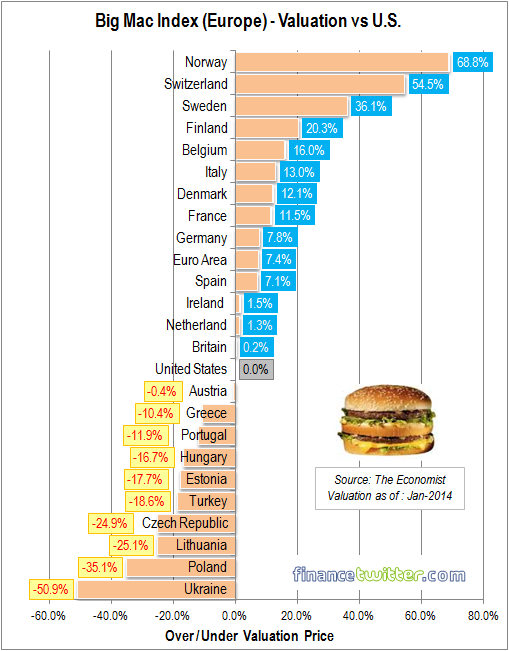






















[…] Big Mac Index – Cheapest Places To Buy Your Burgers […]